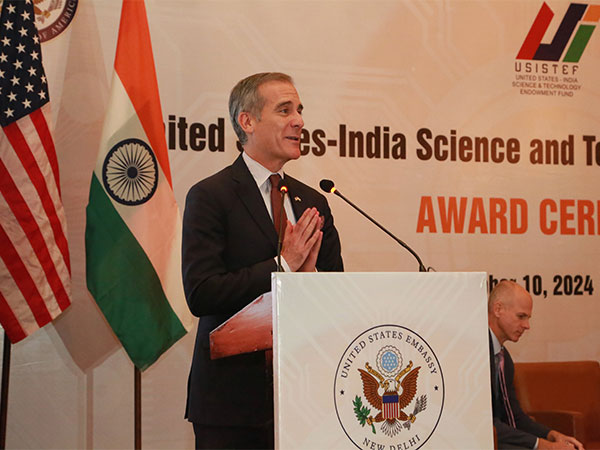
New Delhi: The US and India have announced grants of over $2 million for joint research projects aimed at advancing artificial intelligence (AI) and quantum technologies for social good.
This announcement was made during an event hosted by US Ambassador Eric Garcetti and Seth Center, Acting Special Envoy for Critical and Emerging Technologies, along with Indian Minister of State for Science and Technology Jitendra Singh and other top officials, the US Embassy said in a statement.
A total of 17 projects, 11 focusing on AI and 6 on quantum technologies, will receive nearly USD 120,000 each. These projects aim to tackle critical societal challenges, including AI-assisted early cancer detection and advancements in quantum computing. The grant competition is part of the broader US-India Initiative on Critical and Emerging Technologies (iCET).
In addition, the two countries unveiled a new USD 1 million USISTEF grant to support joint research on advanced materials and critical minerals. This initiative aims to deepen collaboration between US and Indian researchers across universities, national labs, and the private sector, stated the press release.
In a post on X (formerly Twitter), US Ambassador Eric Garcetti wrote, "I was honored to join Minister Dr Jitendra Singh and Dr Seth Center, Acting Special Envoy for Critical and Emerging Technology, to celebrate US and Indian innovators working at the cutting edge of AI and quantum technology! The US-India Science & Technology Endowment Fund is fueling partnerships to develop and commercialize critical and emerging technology as we build a brighter tomorrow."
Garcetti emphasized the importance of tech cooperation, stating, "India and the US have a vision of technology that can connect and protect their people and be used as a force for good. The endowment fund is bringing together innovators because, as I often say, the Indian dream is the flip side of the American dream, and vice versa, and we really like each other."
Seth Center also praised the awardees, noting, "Partnership between the United States and India is key to shaping the future of these and other emerging technologies so we collectively remain at the leading edge of innovation. We must ensure that they are developed and used with respect for human rights and fundamental freedoms and support sustainable development around the world."
This announcement is part of broader US-India cooperation under iCET, including recent developments such as the second Quantum Coordination Mechanism meeting in Washington and continued bilateral research under the US National Science Foundation.